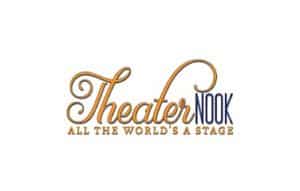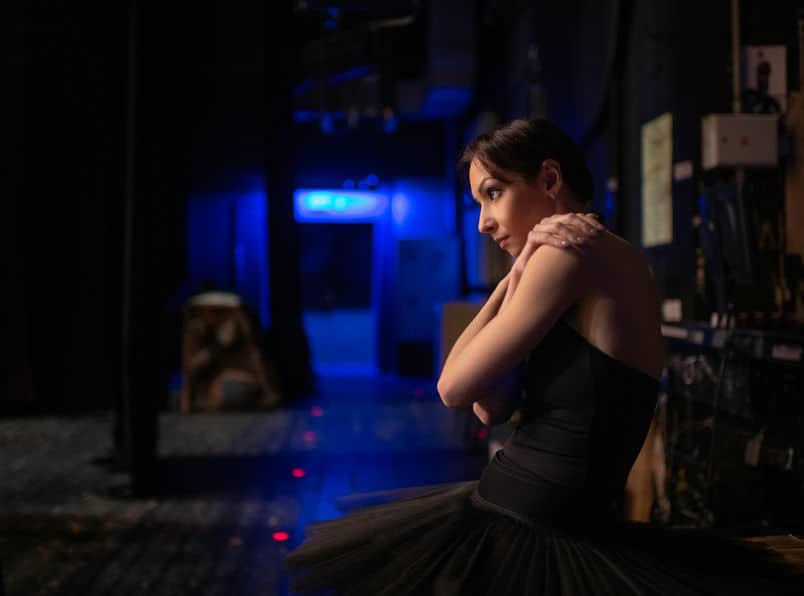Backstage etiquette s a very important part of the performance process and there are etiquette both stated and otherwise needed to be adhered to. From being quiet, only touching one’s own props, leaving pullies and ropes alone to name a few. Read through the headings to find out more.
Don’t Touch Others Props or Things
Do not touch other people’s props, costumes, or personal items and the back state area. Leave these items alone, because if you do not, you risk being responsible for breaking the item or losing things that other performers may need especially for performing on stage.
If an actor comes back Stage to the props table only to find their prop item is no longer where it was, this can put the performer and play in crisis. It doesn’t bode well for cast relationships when items have been touched and moved.
Don’t leave your water bottles on or near the props table, because they may spill over into the props and cause a problem for it’s use on stage.
Find a place out of the way and where it won’t be accidentally tipped over or roll in the way. In fact some cheaters have a designated drink bottle area just for the performers and crew use.
Noise Levels Backstage
When waiting in the wings ready to go on stage, you must be super quiet.
If you talk loudly or make noises which carry into the audience, this is very unprofessional.
The audience should not be distracted by any other noises from backstage. They should only be concerned with the action on stage.
Respect Other Performers Focus
Respect the fact that there are actors who need to focus intensely on their preparation for the role at hand. If you are busy talking or whispering to others backstage, you run the risk of interrupting that intense focus. Sometimes inexperienced and or amateur performers dont have the awareness to keep backstage noises down.
Taking Care of Costumes in Theatre
Punctuality
The stage manager, or stage assistant calls you for your 5 minutes call you must go to your positions backstage ready to perform. Do not dilly dally in the back talking to others, or you risk missing your cue.
You also the risk of ruining a scene audio opening things if you are not in the your position to begin with and ready to go.
You also risk the ruination of your reputation as a performer if this is an ongoing have it of yours.
Downtime During Rehearsals
When you are not required on stage or even backstage, it is best for you to go over your lines, or your musical lyrics in a quiet space.
Always be aware that fellow actors who in The Green room with you may need that time and space to go over the lines and think about their performance, or simply relax. Having a fellow performer making loud statements, laughing or speaking loudly can irritate other performers.
Rehearsal Sitting in the Audience
If you are able to sit in the audience during a rehearsal process, this can very a very valuable time. You become pseudo audience for that scene and for the director.
You should be listening intently to the directions given to the actors on stage because these directions may be directed at you in a future scene. Listen and watch and you will learn much the process.
It’s a bad idea to talk laugh and or giggle in the seats during a scene run through. You run the risk of the director stage manager ornproduces telling you off to hush.
You need to be aware of the process at hand. And you don’t want to get a reputation for being an irritant to the director and other cast members. This may hamper your potential, to work with the company in the future.
Don’t touch ropes and Pullies Backstage
This is an old superstition but you should never touch ropes and pully systems because they may be attached to a scenery piece such as a flat for the stage. They may also be attached to sandbags which can be used to anchor certain scenery or parts of the stage.
Can you imagine a rookie performer touching a pulley and or rope backstage in curiosity, only to find it moved the large backdrop scene during a performance? Or moving a sandbag which usually counterbalances a set piece and having it fall on a fellow performer?
Even though some ropes and pullies look tempting to touch, keep them for the theater technicians who know what they are doing.
Movement On and Off Stage for Backstage Etiquette
Usually an actor makes way for the actors coming off stage first. So if a performer is walking off stage upstage left in one particular wing, the performer waiting in the wings, should anticipate the exit of that actor and move so they can enter backstage. They then move on stage. This movement should also be worked out with the director and stage manager.
Also if you are waiting backstage, wait behind the wing curtain so you can’t see the audience. The rule is if you can see the audience, they can see you.
Watch that you aren’t casting an unnecessary shadow on the floor when waiting.
No-one who is not part of the show, should be lurking in the back stage area. Any friends or family members must wait after the show to meet with them, usually in the foyer.
When the work lights go off, you are technically working and the show will not be far from opening either the first or for the second half show. Make sure you are focused and ready to go when these lights are off and the back lights (usually blue lights which don’t glare) are on.
Crew Members Backstage Equitte
Should usually arrive on time and be ready to do their jobs. Often the stage manager and crew arrive before the performers to set the scene, arrange props, costumes and handle the general theatre jobs.
Having outside people interacting with the performers, especially during the performance is frowned upon. This is a no no for backstage etiquette.
Crew Members backstage should wear steel-toe boots or tough shoes, because there is always risk of falling set or large furniture pieces.
Crew members should also wear black clothing and boots/shoes so they don’t pull focus from the performance at hand.
Crew should only perform the duties that they are responsible for, or are asked to perform by the stage manager or production team. Otherwise they can risk health and safety of fellow crew and cast members, or risk harm to themselves or put the show at risk.
After the Show
After you have finished your show, you should ensure that your props are returned the props table, your costumes is hung up or put in the laundry basket to get washed. You should also ensure that you leave your dressing room in a tidy order.
Arrange the things that you’ll need for the next performance in your dressing rooms or locked away for the next day.
You can meet your loved ones and friends after you have undressed and put your costume away and put on your own clothes.
If you are wearing heavy stage makeup, it is a good idea to quickly take it off and then meet your friends. You’ll ruin the illusion especially for kids, if you come out in stage makeup while in your street clothes.
When you leave the theater, make sure you sign out so the stage manager knows everyone is out of the complex and can work with the theatre technicians to close up.
A sometimes used, but always appreciated backstage etiquette is to always thank the stage-manager and crew for their help when you are done. You are all working in this industry together and are there to make a good show happen. Always leave the night on a good note.
Hope you learned the main etiquette of the backstage while a performer and or crew member.


